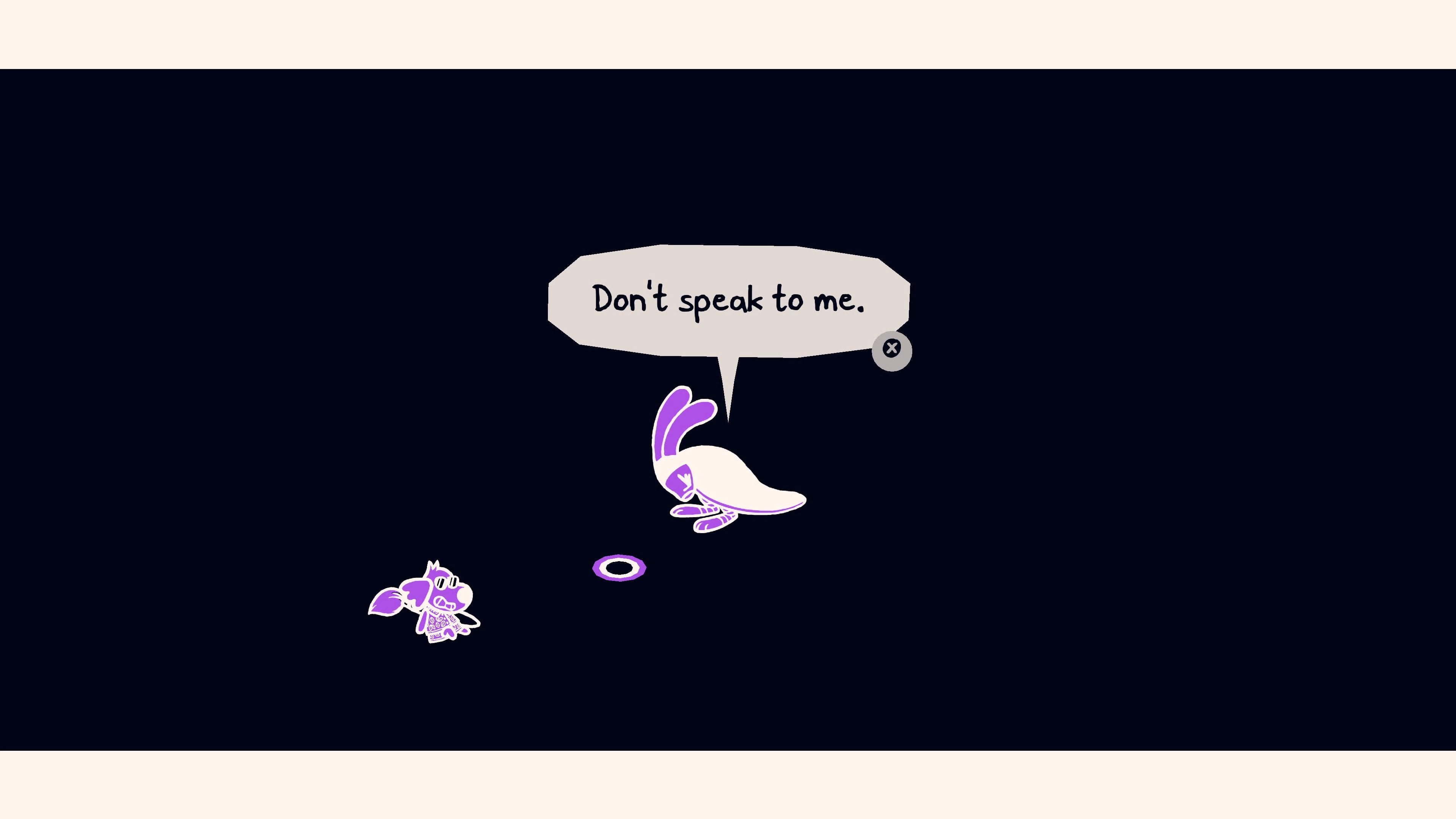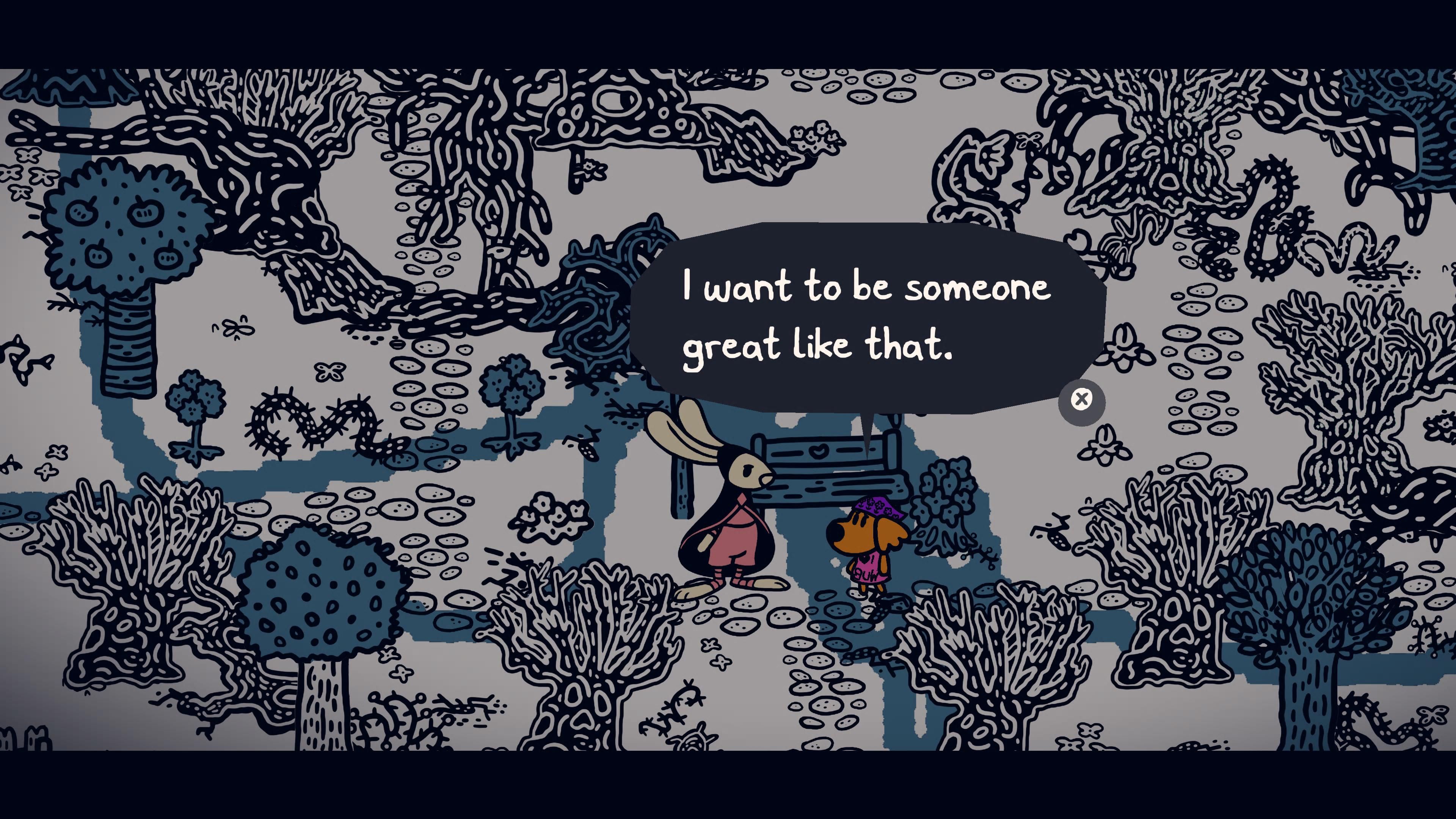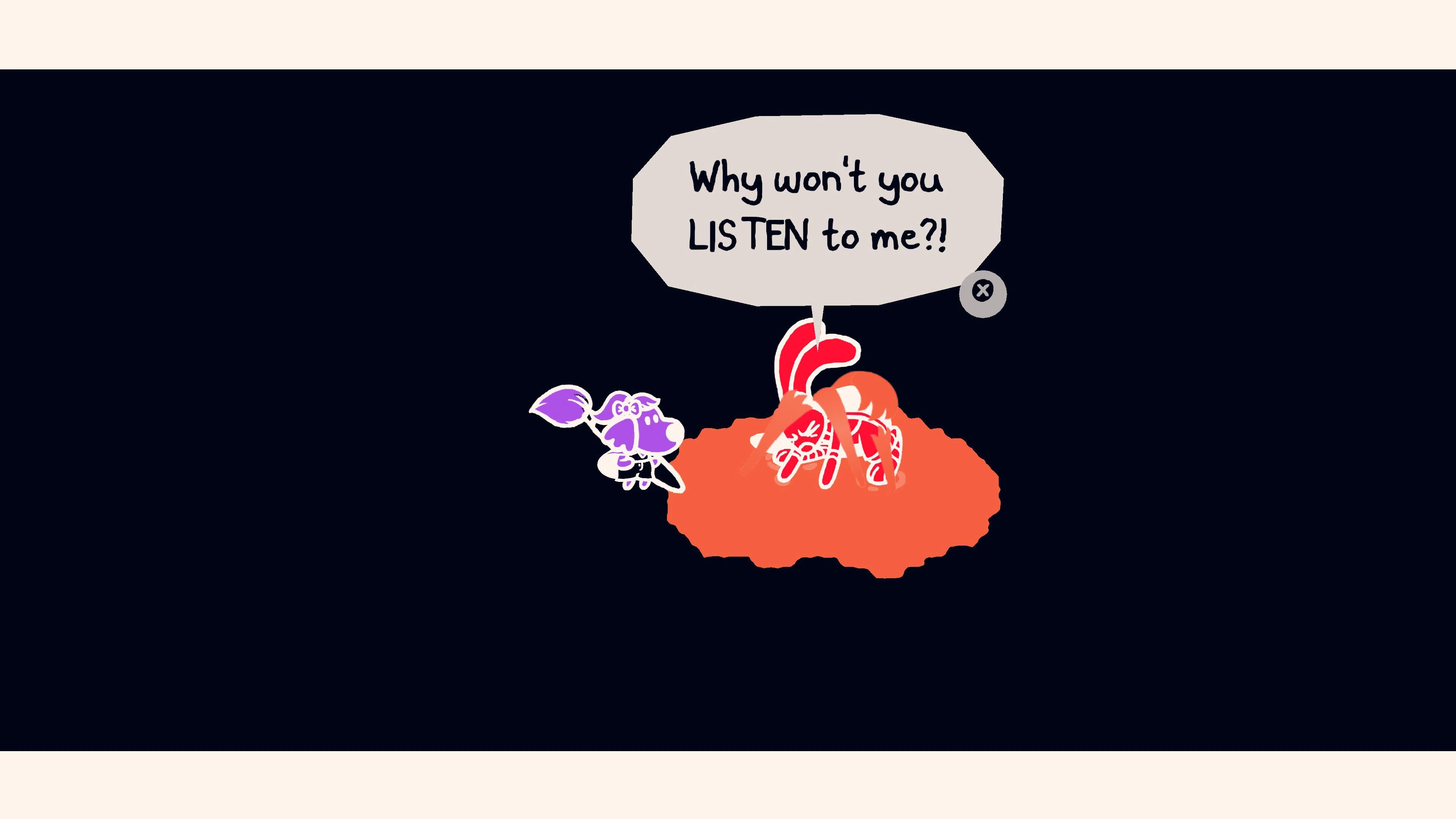Chicory understands my depression in ways few other pieces of media ever have. It’s incredibly rare that I see depression even remotely like my own on the screen. There are complexities to mine – it has its roots in a slowly fading gender euphoria, for one, but mostly it’s just that I’m better than everyone else at depression. I’m kidding, but not really. That’s a big part of my depression too.
The story of Chicory is relatively simple – Chicory is the Wielder; they are in charge of bringing colour into the world. Once day, the colour vanishes, and you must play as Chicory’s janitor and bring it back. Typically, the Wielder is a chosen artist whose talent excels them above all others – a creative genius whose gifts are unmatched. Pizza (you name your character after your favourite food) is not a creative genius – they’re a janitor who just happens to be there and winds up on a quest they are in no way prepared for. For a lot of people, Chicory will be a game about impostor syndrome. Pizza is doing fine, but they so clearly don’t belong in this world – I’m told this is a common feeling.
I hear the words ‘impostor syndrome’ thrown around a lot, especially in this industry. Let’s be honest, a substantial chunk of the readerbase is hostile, the cycle of discourse is unending, and the success or failure of certain articles or ideas is unpredictable. Journalism also relies on a lot of lucky breaks, especially if you arrive as an outsider, so it’s rampant with fertile soil for doubts to grow. Impostor syndrome has been explained to me a few times in a lot of different ways, but it seems to just boil down to “I don’t think I’m good enough.” That’s how Pizza feels, but that’s not how I feel – that’s why I identified much more with Chicory, more than I have with any other on-screen depression I’ve ever seen.
Chicory wants to abandon the brush because she’s sick of the legacy it holds, the rules it confines her to, and the darkness it awakens within her. Chicory never for a second doubts that she is good enough for the job – she knows she is. But she’s sick of the way it makes her see everything in life as a contest, every interaction as a thing to win or lose, every artist before her as a benchmark to overtake, every artist after her as an upstart that needs to be put in their place.
It’s depressing – literally – to always be ‘on’ like that. I know. Back when I was a freelance journalist, I was always happy when my mates got commissioned… unless that outlet had just rejected me. Then I had to figure out why their idea flew and mine didn’t. It was great to see the fantastic and insightful work my friends wrote picking up traction, but everybody better not forget that thing I wrote last week, alright?
Now that I’m at TheGamer.com, it’s different. Better in some ways, worse in others. I guess this is my Wielder Tower; in the game, Chicory lives in the same room all the Wielders before her have lived in, and must wander past each of their portraits every day. We have some brilliant writers here, and they’re all in competition with me. They don’t know the rules, they don’t even know that this match has started, but we’re competing all the same. Ultimately, we’re all on the same team… but it’s still a contest. If my stories don’t do well a couple of days in a row, it hurts. I don’t get sad, being sad doesn’t help anything. It’s more like an anger, a drive. I never for a second think that I don’t belong here, and nobody can ever convince me I don’t because I won’t believe them. It’s not impostor syndrome, it’s the opposite – it’s Chicory syndrome. It’s “I know I’m good enough for this and every day I don’t prove that beyond a shadow of a doubt is a failure.” Because if I’m not the best then what am I?
Depression on television rarely works like that. It’s people thinking they’re useless, unlovable, a waste of space. There might be some of that mixed in there with me and Chicory, but it’s down way too deep. Being the best makes us useful, so that’s all we have to worry about. Gender issues play a big part in how I feel too, but it almost feels like double depression. Half of it comes from a dysphoria that two years’ worth of therapy and medical transition have helped alleviate, and the other half comes from Chicory syndrome.
It makes you mean, if you let it. We see that spill over with Chicory too – a lot of depression we see depicted in media is full of self-loathing, but that only comes out when you’re all alone. Most of the time you hate other people. When Chicory lashed out in the game, I saw far too much of myself, just as I did with Badeline in Celeste. I think I’m over the worst of what I’ll call my Chicory syndrome from now on, with the gender therapy helping with that, as well as the naturally brighter outlook on life that comes from lessening dysphoria, and the quality of life improvements that come with that. But I still feel it, I still need to be the best. Maybe that’s not depression, so much as it’s just me – maybe it will always be a part of Chicory too, but I hope not.
Chicory is an absolutely stellar video game in its own right, with intriguing puzzles and fantastic, inventive boss battles. Pizza, or whatever you call them, is the star of the show, and I know a lot of people will connect with the little doggie that could. But I’ve never seen a character like Chicory before. She’s not cocky or confident; there’s no arrogance in her. She just sets herself impossibly high standards each day and forces herself to clear them most days. I’ve done it all my life and it’s exhausting. Neither Chicory nor I are particularly competitive either, it’s not really about beating other people. Other people are just… there. You’re in constant competition with yourself and your opponent is never going to give you an inch. Chicory is the closest media has ever come to understanding how I think, and maybe it helps me understand myself a little better too.
Source: Read Full Article


